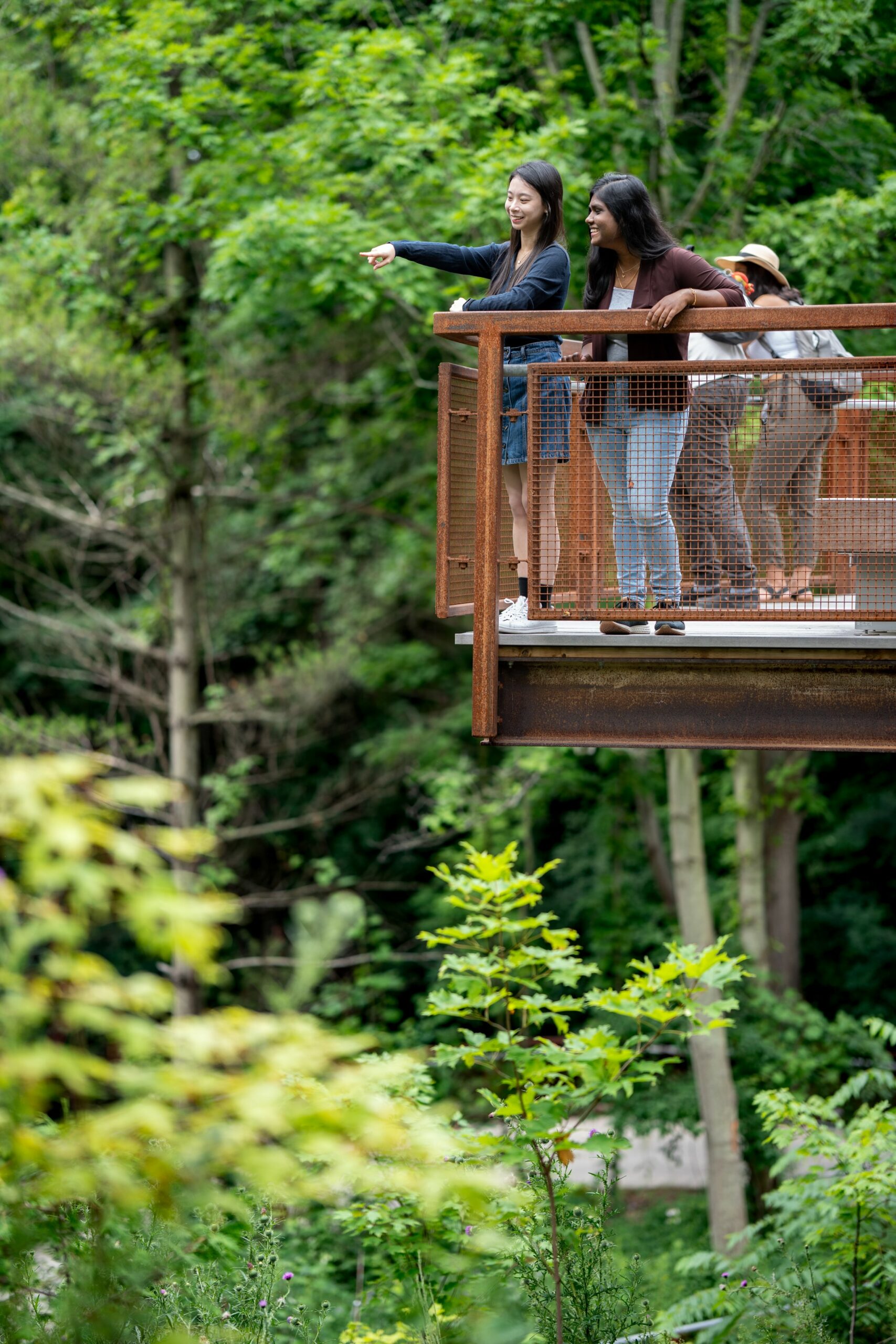
2024-25 Annual Report
Progress in Partnership
President’s Advisory Committee on the Environment,
Climate Change, and Sustainability (CECCS)
On this page
The committee is pleased to present our 2024-25 highlights. Explore further details on our work and progress over the last year in our full annual report.
A Message from
the President
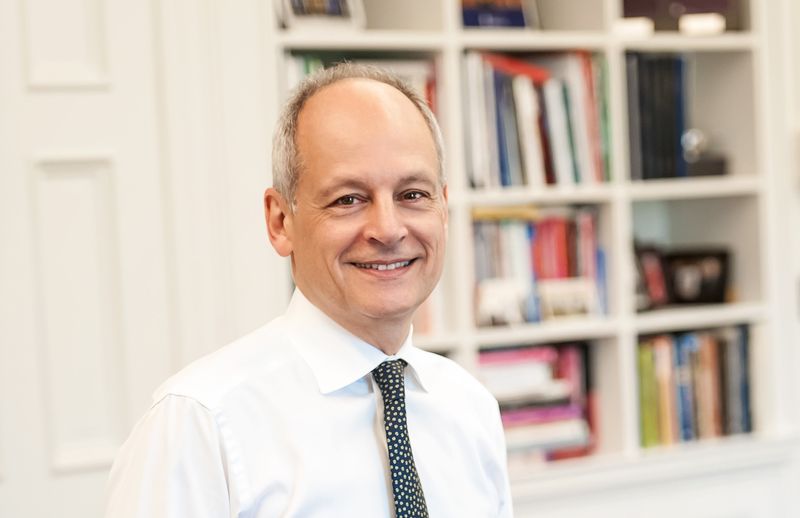
The 2024-25 annual report of the President’s Advisory Committee on the Environment, Climate Change, and Sustainability (CECCS) showcases the University of Toronto’s sustainability excellence in the higher education sector and our global leadership in realizing a holistic vision to create a more sustainable future.
Across our three campuses, CECCS and the tri-campus community are delivering impact in all areas: integrating sustainability in research, teaching and learning and operations. This report also spotlights some of U of T’s most innovative faculty, staff and students who are dedicated to advancing sustainable practices and principles in their classrooms, labs, workplaces, communities and beyond.
On behalf of the University, I extend congratulations and gratitude to CECCS co-chairs, John Robinson and Ron Saporta, and the entire committee, subcommittees and secretariat, for their stewardship of the University’s sustainability efforts.
Overseeing the committee’s creation in 2017 and its ongoing work has been a source of pride during my time as president. In July, my successor will inherit an advisory committee that is bold, practical and optimistic, committed to working together to transform not only our campuses but the world. With that comes a world of opportunity – one that the U of T community is well-positioned to seize.
President Gertler’s
Sustainability
Leadership Timeline
2017
Creation of CECCS and the appointment of a presidential advisor on the environment, climate change, and sustainability
2019
Establishment of Institutional Strategic Initiatives, including several new ISIs advancing both interdisciplinary and sustainability research and collaborations
2020
The launch of the Sustainability Pathways Program
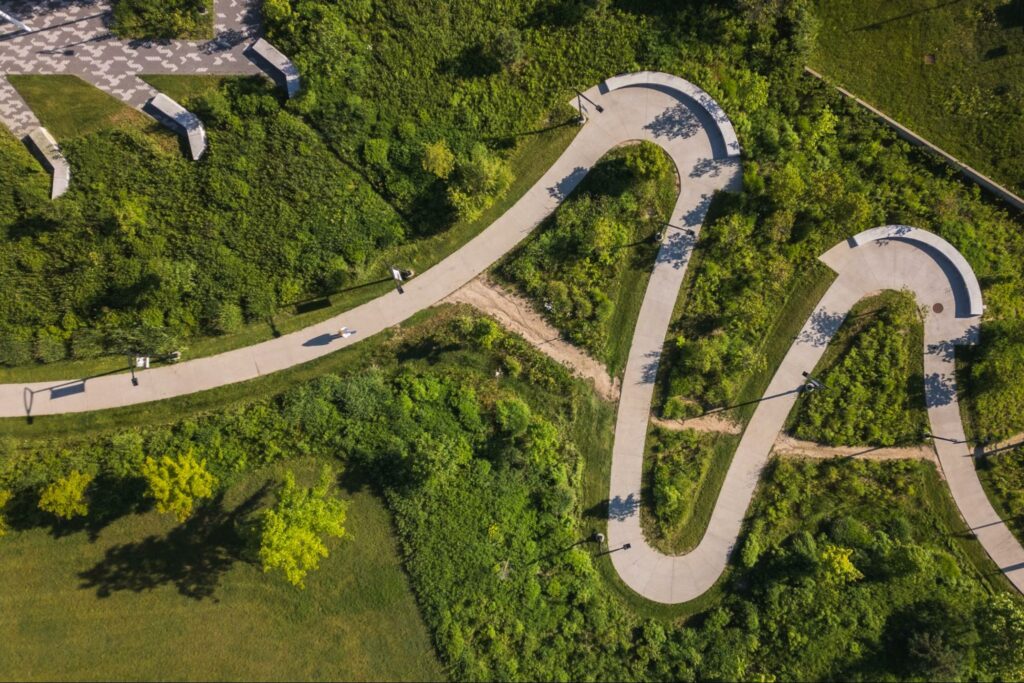
2021
U of T divests from fossil fuels and is the world’s first university to join UN-Convened Net-Zero Asset Owner Alliance
2021
St. George campus launches its Climate Positive Plan
2023
As part of Universities Canada, U of T helps launch Canada’s Universities: Action for Net Zero and announces its Climate Positive commitment on all three campuses
2023
U of T announces its Climate Positive commitment on all three campuses
2024
CECCS made an ongoing part of U of T after three two-year mandate periods
2024
Student Leadership Subcommittee of CECCS is formed
2024
U of T announces Project LEAP
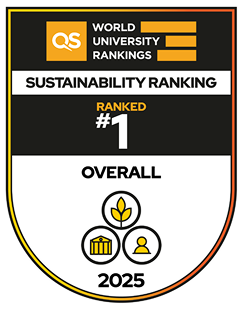
QS Sustainability Rankings
In 2024 and 2025, the University of Toronto was named the world’s most sustainable university by the QS World University Rankings: Sustainability.
The ranking, conducted by London-based firm Quacquarelli Symonds, evaluates universities on their ability to tackle pressing environmental, social and governance challenges and their outward impacts, with U of T earning the top spot in 2025 out of 1744 universities, including 350 new entrants, from more than 100 locations.
2024-25 at a Glance
$14M
in diverse supplier spending since launch of social procurement portal
7:7:7
new faculty, staff and student members driving the future of the CECCS
924
Sustainability Scholars enrolled across 6 programs in 5 divisions
12,000+
Sustainability Pathways Program video views on social media
505+
Campus as a Living Lab and Experiential Learning Projects pairing students and partners on sustainability solutions on and off-campus
86
Early Career Researchers engaged in Transdisciplinary Co-Production training and events
25+
global university networks collaborating on accelerated climate & biodiversity action as part of the Network of Networks co-chaired by U of T
6M+
pounds of landfill waste diverted annually from the tri-campuses
450+
students, faculty, staff and community members engaged by CECCS Student Leaders in 2024-25 academic year
A New Era for CECCS
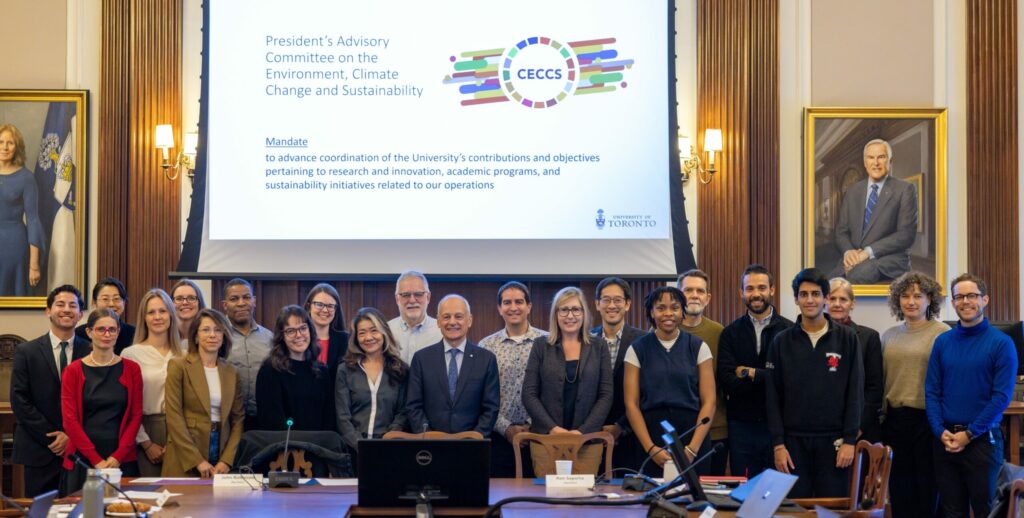
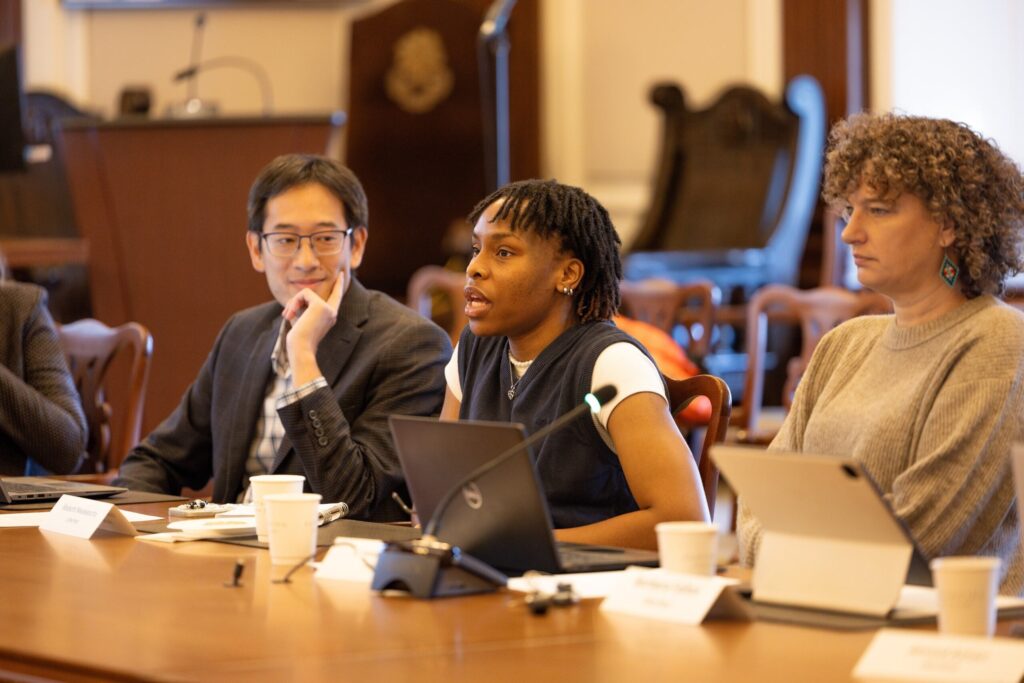
After careful review and consideration, the president appointed the members listed below, launching a new phase of work for CECCS as an ongoing part of the U of T landscape after our last (third) mandate period.
We are excited to welcome a diverse set of interests, expertise and leadership in sustainability with our new committee members as follows:
Faculty
Faculty
Timothy Chan
Associate Vice-President and Vice-Provost, Strategic Initiatives; Professor, Mechanical & Industrial Engineering (Teaching & Learning Subcommittee Co-Chair); Engineering
Barbara Fallon
Associate Vice-President, Research; Professor, Social Work (Research Subcommittee Co-Chair); Social Work
Marianne Hatzopoulou
Professor and Chair, Civil & Mineral Engineering; Director, Positive Zero Transport Futures (Operations Subcommittee Co-Chair); Engineering
Hilary Inwood
Lecturer; Coordinator, Sustainability & Climate Action Network, OISE (Teaching & Learning Subcommittee Co-Chair); OISE
Ito Peng
Professor, Sociology/Munk School of Global Affairs; Director of the Centre for Global Social Policy; Arts & Science
Nicole Spiegelaar
Assistant Professor, Teaching Steam, School of the Environment; Academic Director, Trinity’s Integrated Sustainability Initiative; Arts & Science
Imre Szeman
Director, Institute for Environment, Conservation & Sustainability (Research Subcommittee Co-Chair); Professor, Human Geography; UTSC campus/iRISE/Human Geography
Staff
Staff
Deborah Brown
Chief Administrative Officer, UTM Campus
Roger Bulgin
Chief Administrative Officer, Woodsworth; Arts & Science
Gwen Burrows
Assistant Vice-President, International Engagement & Impact; Office of the Vice-President, International (OVPI)
Sarah Hinves
Senior Planner, Infrastructure Planning; Arts & Science
Jeffrey Miller
Director, Facilities Management & Capital Projects, UTSC
Shannon Simpson
Senior Director, Indigenous Initiatives; Office of Indigenous Initiatives
Catherine Thorn
Director, Sustainability & Energy Management (Operations Subcommittee Co-Chair); Facilities & Services
Students
Students
Diego Arreola Fernández
4th year, Environmental Studies, Economics, International Relations
Victoria Costa Duarte
1st year, PhD in Political Science and Collaborative Specialization in Environmental Studies
Hannah Permaul Flores
4th year, BSc, Forest Conservation
Harshit Gujral
2nd year PhD, Computer Science (Student Leadership Subcommittee Co-Chair)
Zach Lidder
2nd year, Peace, Conflict & Justice Studies, Trinity College
Kelechi Nwokeocha
5th year, Environmental Science/Biology (Student Leadership Subcommittee Co-Chair); UTSC campus
Jason Pang
1st year, Masters of Sustainability Management (MScSM) ; UTM campus
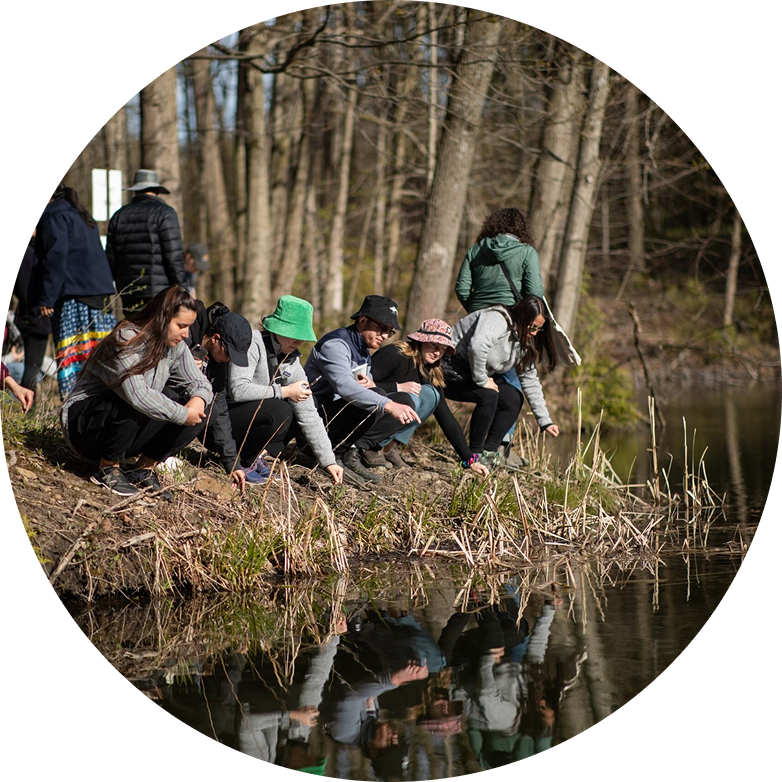
Teaching & Learning
Highlights from the subcommittee this year include the establishment of a Campus as a Living Lab working group, progress on the tri-campus climate positive commitment, and Project Leap receiving a Climate Luminary award from Second Nature.
U of T students take part in a land-based learning workshop at Hart House Farm. Photo: Nick Iwanyshyn
Sustainability Pathways Program
The mission of the Sustainability Pathways Program is to provide all undergraduate students with the opportunity to incorporate sustainability learning into their program and develop cross-cutting interdisciplinary skills.
The program encourages students to become Sustainability Citizens, Scholars, Leaders, or a combination of the above through an integrative tiered framework of co-curricular activities, academic learning, and culminating leadership activities, respectively.
In 2025, two new Sustainability Scholar Certificates were launched in the Faculty of Applied Science and Engineering (Certificate in Renewable Resources Engineering and a Certificate in Electric Vehicle Design), bringing the total number of offerings to eight certificates and minors in five U of T divisions.
In October 2024, U of T was shortlisted for the Sustainability Education Literacy category of the QS Reimagine Education Awards for our Sustainability Pathways Program.
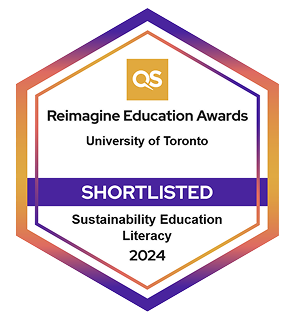
Hit play below to learn more about the Sustainability Pathways Program
The Pathways Program has given me the opportunity to connect what I learn in class with my daily activities as an individual, community member, and pathfinder for positive change. Since beginning the program, I’ve been welcomed by a community of like-minded peers and supported by enthusiastic and devoted faculty, which has made me feel a lot less alone in the fight against the eco-crisis.

[The program recognition on your transcript signals] your specialization in and commitment to sustainability which makes you more appealing to potential employers, because so many industries and sectors are looking for young people who are trained in sustainability now…. It’s important to ensure the students are leaving the program with a sense of purpose, a sense of hope. While there are many challenges the world is facing, there are equally as many solutions.

Research
Highlights from the subcommittee this year include the successful continuation of TKC community and capacity building, the exploration of potential ways to integrate sustainability into research, and a new partnership on a seed grant with the Collaborative Centre for Climate, Health & Sustainable Care.
Biology researchers at UTSC. Photo: Ken Jones
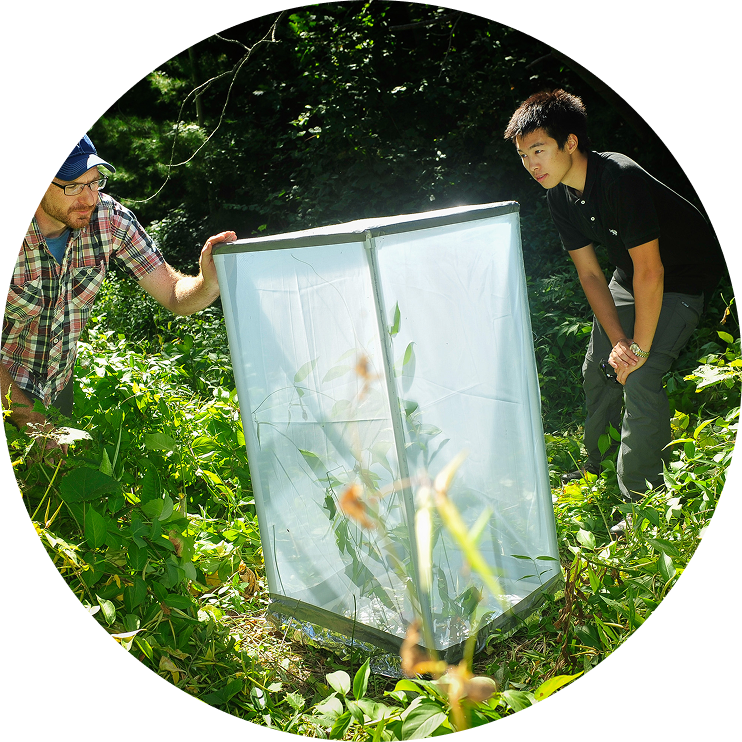
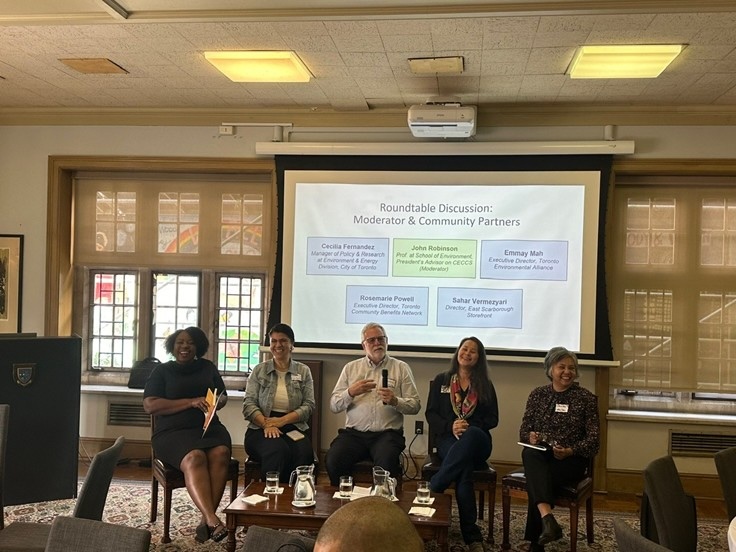
Transdisciplinary Knowledge
Co-Production (TKC)
Traditional academic training often focuses on extractive research methods, but addressing sustainability and climate challenges demands solutions-focused, community-engaged research. In collaboration with the SDGs@UofT Institutional Strategic Initiative (ISI), CECCS co-hosted three TKC workshops to explore transdisciplinary approaches, practical tools for community partnerships, and perspectives from both academic and community voices, and helped launch a new TKC Community of Practice.
Supporting the Collaborative Centre for Climate, Health and Sustainable Care Seed Grants
In 2024, CECCS partnered with the Collaborative Centre for Climate, Health & Sustainable Care on a Seed Grant to foster and support members of its community working collaboratively on research in health, health systems, climate, environment, sustainability and sustainable development. The $10,000 grant was awarded to Kate Hanneman, associate professor and vice-chair research, department of medical imaging in the Temerty Faculty of Medicine. Hanneman’s project, Age and Sex Specific Effects of Climate Related Environmental Exposures on Medical Imaging Utilization, aims to inform adaptation and resilience strategies to prepare for the effects of climate change and improve environmental sustainability in radiology at local, national and global levels.


Operations
Highlights from the subcommittee this year include the establishment of a Campus as a Living Lab working group, progress on the tri-campus climate positive commitment, and Project Leap receiving a Climate Luminary award from Second Nature.
CECCS student members Hannah Flores, Diego Arreola Fernández, Dorottya Kiss, at the geoexchange below King’s College Circle. Photo: University of Toronto Communications.
Tri-Campus Climate Positive Commitment Update
Progress on the climate positive tri-campus commitments is being led by the respective sustainability offices at each campus. St. George and UTM have published climate action plans with aligned metrics.
The St. George campus has reduced carbon by over 26,000 tons to-date, and due to progress with Project Leap has the campus well on track for over 60% of reductions by 2027 and achieving climate positive before the 2050 target. Project Leap was recognized by Second Nature with a Climate Luminary Honors at the 2025 Higher Education Climate Leadership Summit in Washington, D.C. in February 2025.
UTM’s plan builds on their 2019 Low Carbon Action Plan, 2020 Utilities Master Plan, Sustainability Strategic Plan, and 2021 Campus Master Plan. Part of the plan involves Project SHIFT, which will cut greenhouse gas emissions by 39 per cent by 2030.
UTSC is finalizing its plan, identifying $38 million in carbon reduction measures, including HVAC and building envelope upgrades as part of their 2024–29 Energy Conservation and Demand Management Plan.
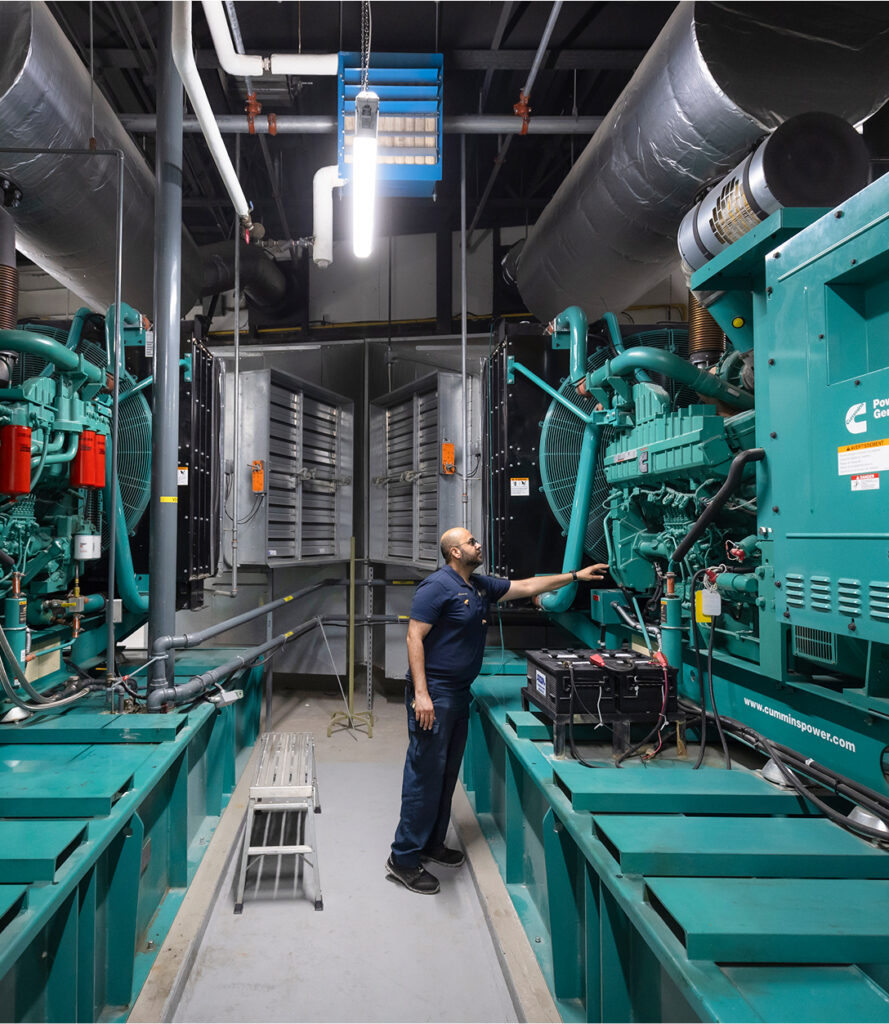
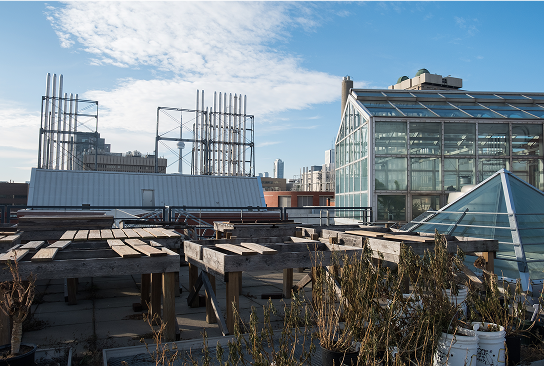
Campus as a Living Lab
Working Group
The CLL Working Group was established in early 2025 and is made up of members from each CECCS Subcommittee, as well as two CLL course instructors.
They are tasked with providing direction to the goal of expanding the University’s Campus as Living Lab program, including through recommendations to CECCS and the Secretariat, on such items as:
- Establish a framework, direction, and set of priorities for expanding CLL
- Consider how CECCS should support, encourage, and facilitate both course and non-course based CLL projects, activities and initiatives.
- Map the role of different CLL supports and roles across campus, including value-addition of the CECCS team on matchmaking, process direction, CLL support tools, etc.
Student Leadership
The launch of the new CECCS student leadership subcommittee has been a major highlight of 2024-2025. The group has already made progress on a wide range of priorities identified, including on a sustainability pilot with the U of T caretaking team and a waste audit with student residences.
UTSC students at the Instructional Centre. Photo: David Lee
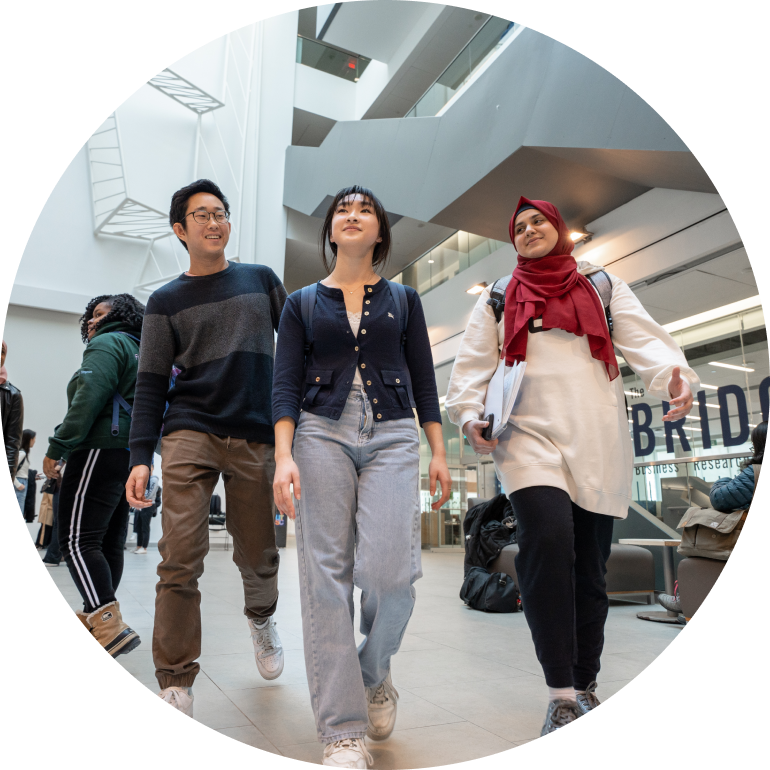

Improving Waste Diversion/Recycling in Student Residences
In March 2025, the subcommittee conducted waste audits at Chestnut and University College residences. Results from these audits will be reviewed alongside past Campus as a Living Lab projects on waste to develop a best practice guide on waste management in residences. This guide will be shared with residence management teams and student advocates.
Collaboration with Caretaking on Biodegradable Soaps and Eliminating Paper Towels from Washrooms
Caretaking provided a list of cleaning products and soaps currently in use, which showed that most of the cleaning products and all of the hand soaps are already Ecologo certified, which means they are readily biodegradable. The students have created a webpage on biodegradable soaps that explains how their use supports human health and marine life and includes an FAQ section. U of T’s use of biodegradable soaps on all campuses has been promoted through a social media campaign corresponding with Earth Day.
The students are also working with Caretaking to pilot removing paper towels in hundreds of washrooms on the St. George campus, given the existence of energy efficient hand dryers in those locations already. The long-term goal is to update Caretaking Design Standards to phase out paper towels entirely as UTM has already done, with ongoing student research and collaboration supporting sustainable change.
Further Highlights
Internship Program
In the summer of 2024, CECCS administered full-time internships with local non-profit and government organizations thanks to funding from Wendy Adams. We provided up to $15,000 each to EcoSchools, EcoSpark, the City of Toronto Environment & Climate Division, Malvern Family Resource Centre, and Toronto Environmental Alliance to hire U of T students or recent graduates to work on specific sustainability projects or challenges.
Overall, this was an extremely valuable opportunity for me to get experience in the environmental and nonprofit world… programs like this are essential, especially for recent graduates trying to get into the sustainability field. [EcoSchools] was a great organization to work with and be part of. I’m grateful for the opportunity to be able to contribute to environmental education work.

The CECCS Sustainability Internship Program is a crucial platform for students and recent graduates interested in sustainability and climate issues. It offers a hands-on experience in the non-profit sector and with government organizations, which is incredibly beneficial.

In early 2025, and with the generous support of a new anonymous donor, the summer internship program became the Sustainability Catalyst Internships.
Students work with a dedicated mentor from the host organization in the public, private, or non-governmental sector in the Greater Toronto Area to complete a defined applied research project over 250 hours between May and September. Interns move through the program as a cohort and receive career development opportunities and project support from CECCS along the way.
For the program’s inaugural year, CECCS has worked with the U of T’s Collaborative Centre for Climate, Health and Sustainable Care and other partners to secure more than a dozen promising new sustainability projects for U of T graduate interns in summer 2025.
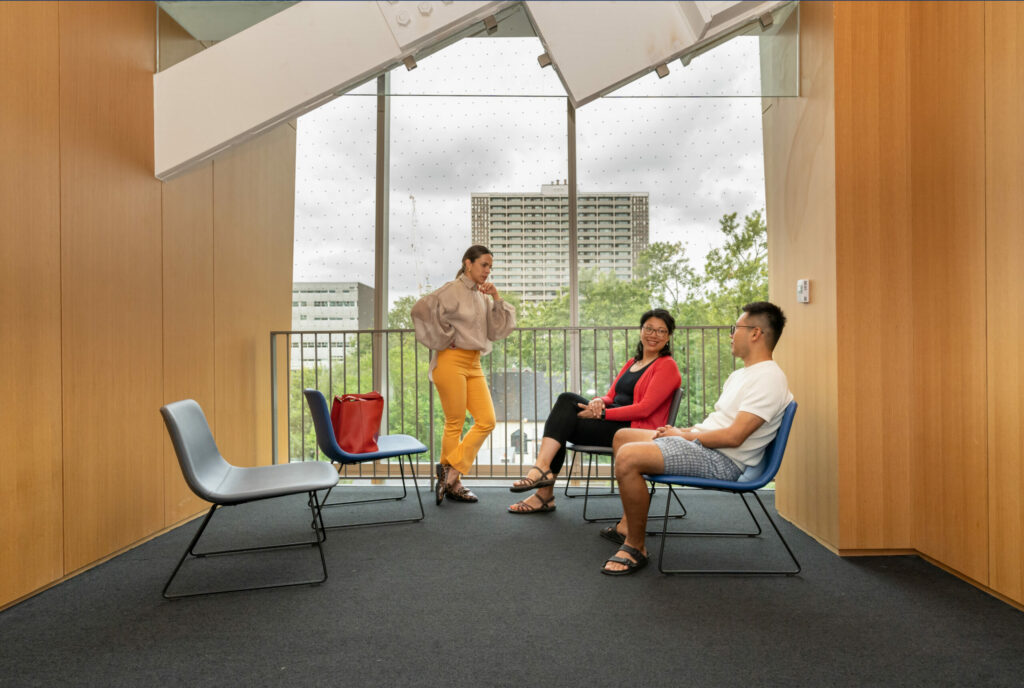
Staff Sustainability Training
Integrating Sustainability Goals in our Workplaces at U of T is a training workshop for staff, delivered by the CECCS Secretariat, in collaboration with the Office of Indigenous Initiatives and the Institutional Equity Offices.
The workshop started out as an Operations Subcommittee initiative in 2021 and was piloted to the first group of 45 staff members on November 27, 2024. Subsequent sessions have all reached capacity.
The learning objectives of the training include:
- Familiarize staff with the UN Sustainable Development Goals
- Understand the connection between sustainability and EDI
- Learn about U of T sustainability, EDI and OII initiatives
- Empower staff to advance sustainability in their workplace
“So great that there’s a workshop on this important topic, and the presenters were awesome – will highly recommend to others.”
Staff sustainability training participant
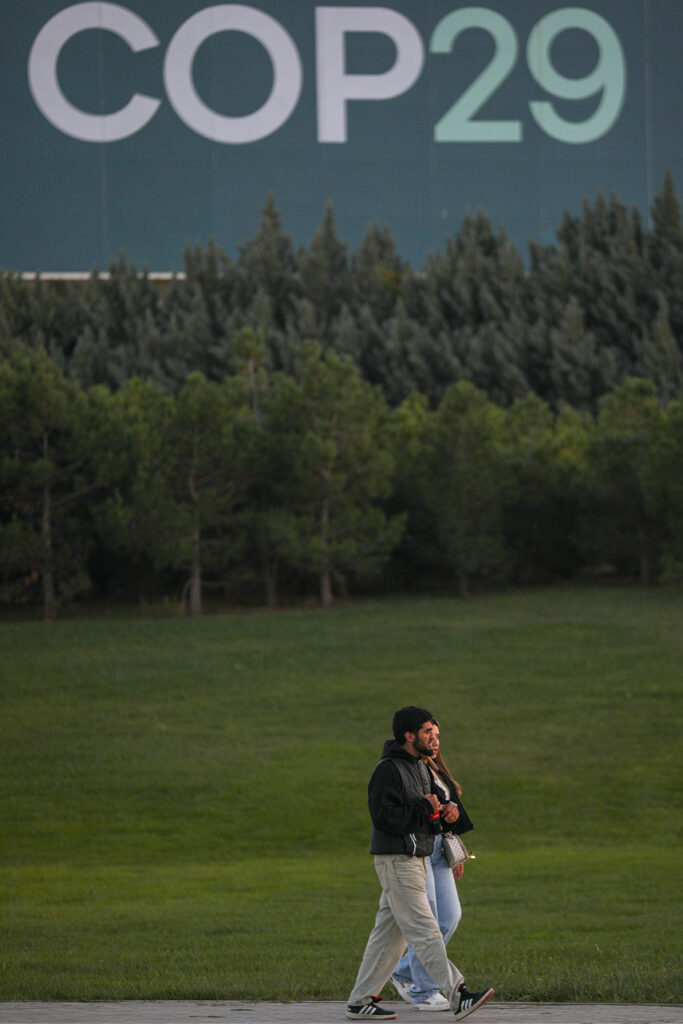
International Networks
U of T plays a leading role in several international networks and groups, including the International Sustainable Campus Network (ISCN), the University Coalition on Climate Change (UC3) and the Network of Networks (NoN), which continues to grow with more than 25 networks participating in NoN activities and calls.
The NoN brings together higher education institution climate networks from around the world and is co-convened by Kristy Faccer, CECCS secretariat director, and Steve Davison, director of strategy for Cambridge Zero at the University of Cambridge.
Recent activity included the NoN providing input to the United Nations Climate Secretariat consultations regarding the 2030 Climate Solutions Roadmap and future of the Marrakech Partnership; new research investigating connections between all three Rio Conventions, the Cali Charter on Biodiversity; a climate-proofing campaign for small and medium enterprises (SMEs); and various convenings by networks and others at the SB60 and Baku Climate Week.
The NoN also hosted a roundtable event at the 2024 United Nations Climate Change Conference (COP29) in Azerbaijan.
Read the Full Report
The above summarizes some of the many CECCS activities and achievements over the last year. Read the full annual report for more details.
